How did breakdancing become an Olympic sport?
Full episode: Early coverage of breakdancing
From the streets of the Bronx to the Olympics in Paris, breakdancing has had quite a journey. In this full LiveNOW & Then episode, we'll look back at how breakdancing first became popular in TV and film.
NEW YORK - The 2024 Olympics being held in Paris added a few events this time around. One notable addition is breakdancing.
What is breakdancing?
According to the World DanceSport Federation, breakdancing or "breaking" is "an urban dance style."
Merriam-Webster defines it as a "dance in a hip-hop style by performing a series of acrobatic moves that often involve touching various parts of the body (such as the back or head) to the ground."
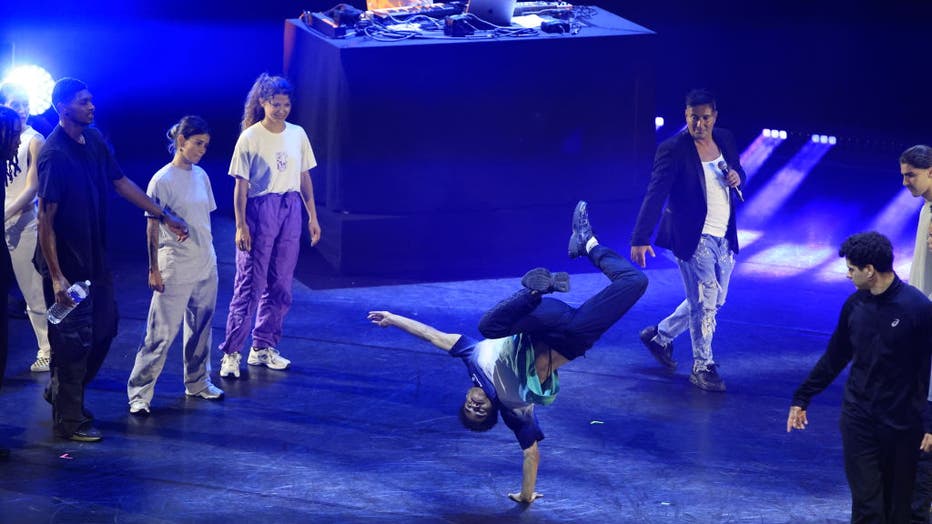
A breakdancer performs on stage during the Battle BD and Breakdance during the Paris 2024 Cultural Olympiad at L'Olympia on July 22, 2024 in Paris, France. (Photo by Julien M. Hekimian/Getty Images)
History of breakdancing
Breakdancing can trace its roots to African-American and Latino youths in the Bronx borough of New York City during the 1970s at the same time that hip-hop culture started to emerge.
Lisa Evers with FOX 5 New York was one of the first news reporters to explore the phenomenon, saying dance moves were performed outdoors on the sidewalks, parking lots, or empty spaces on the streets.
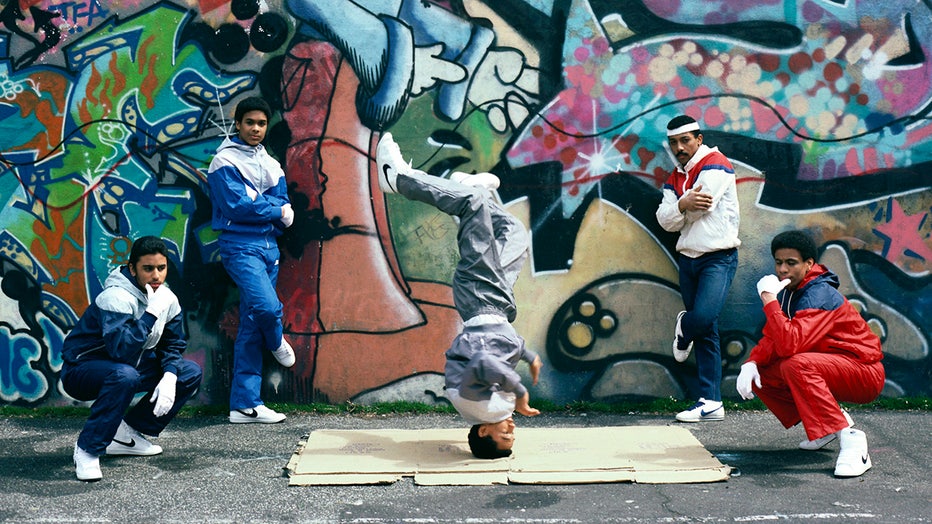
File: Brooklyn breakdancers pose in April, 1984. (Photo by Michael Ochs Archives/Getty Images)
"You had to stop and look because you see the dancer's legs…one leg is over here, another leg is over here," Evers told Chris Williams of FOX Television Stations. "They're upside down. Where are their hands? Where's their head?"
But this latest style of dancing didn’t stay a fad, rather it gained more and more attention.
According to RedBull, breakers started to perform across the country and overseas during the 1970s and 1980s. The dance received further exposure when it was performed at the 1984 Kennedy Center Honors.
Full episode: Early coverage of rap & hip-hop
As we celebrate 50 years of hip-hop culture, here's a look back from the FOX archives at some of the early media coverage of rap and hip-hop -- from the serious to the silly.
"There’s one way to look at this as genuine American folk art," the late singer and actor Harry Belafonte told FOX 5 DC in an 1983 interview. "It has the ability to be as substantial as jazz, as blues, as gospel."
Belafonte also served as one of the producers of the 1984 film, "Beat Street," which chronicled the early days of hip-hop and breakdancing.
By 1990, international competitions began and they soon became regular events, drawing performers from all over the globe.
Breaking in the Olympics
The International Olympic Committee announced three years ago that breaking would become an official Olympic sport.
RELATED: Simone Biles wins gold in Olympics vault final
Breakdancing is called "breaking" at the Olympics, as it was in the 1970s by hip-hop pioneers in the United States. It was proposed by Paris organizers almost two years ago after positive trials at the 2018 Youth Olympics in Buenos Aires.
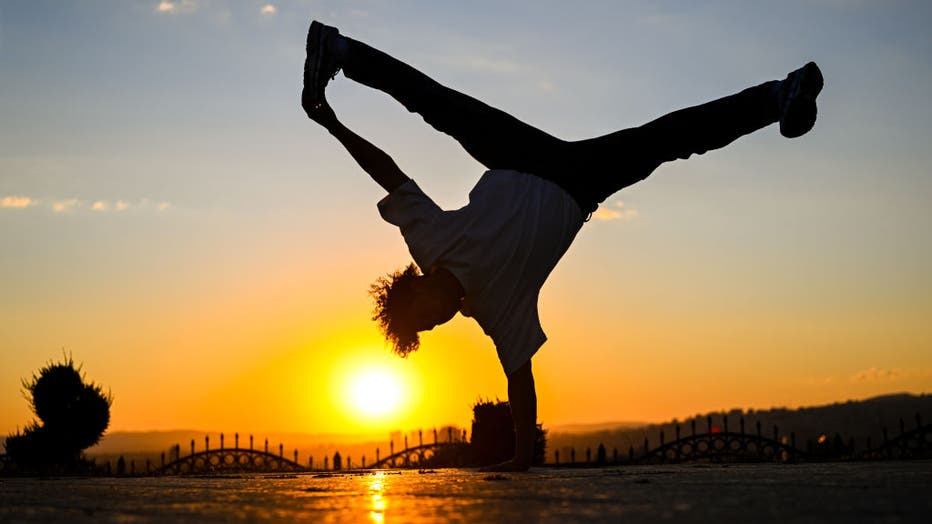
Breakdancer Furkan Coskun, who was nicknamed as 'Sincap' (squirrel) at stage, performs at the Atakule to train after International Olympic Committee (IOC) approves the breakdancing as first dance sport ever to compete at the Olympic Games in Ankara,
Breaking passed further stages of approval in 2019 from separate decisions by the IOC board and full membership. It’s eligible for inclusion because it’s considered a discipline of dancesport, which is recognized by the IOC.
"I think it's fantastic that breakdancing is making it into the Olympics," Evers continued. "It is definitely going to bring them a much more energized and motivated and devoted group of fans watching it."
The buzz around breaking’s Olympic debut is indeed being celebrated by many across the global hip-hop community, from early pioneers of the genre to fans of the culture. Rappers Ice-T and Snoop Dogg expressed their excitement over the breaking competition, with Ice-T tweeting the event "could possibly be one of the HipHop culture’s proudest moments."
Famous Olympics breakdancers
Victor Montalvo (B-boy Victor), United States: A breaker who describes himself as a student of old school b-boys from the founding era of hip-hop, the 30-year-old Montalvo, who is from Kissimmee, Florida, qualified for Paris by besting all other b-boys at the 2023 WDSF World Breaking Championship in Belgium.
Sunny Choi (B-girl Sunny), United States: The 35-year-old Choi, a cheerful Queens, New York-bred breaker, has long been an ambassador for b-girls globally. She qualified for the Paris Games with her win at the 2023 Pan American Games in Chile.
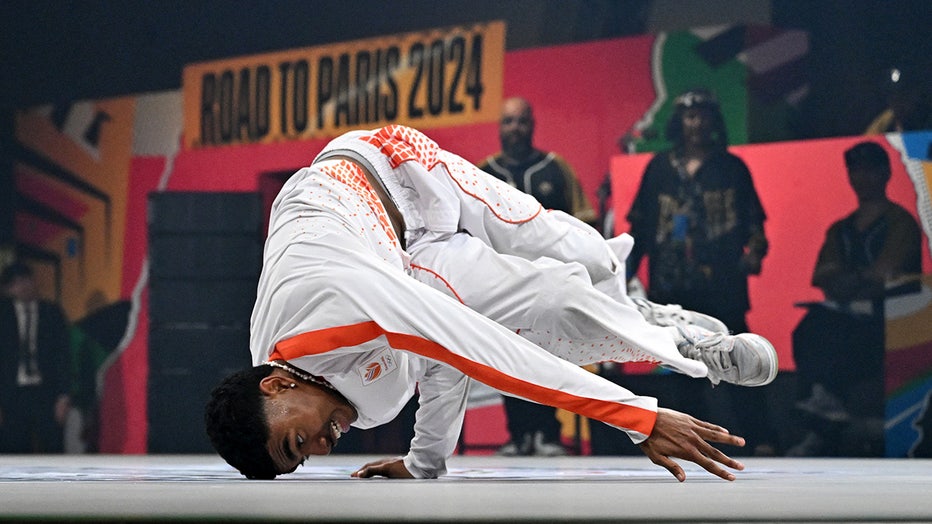
The Netherlands' Lee performs to win the Breaking B-Boys event of the Olympic Qualifier Series 2024 in Budapest, Hungary on June 23, 2024. (Photo by ATTILA KISBENEDEK/AFP via Getty Images)
Philip Kim (B-boy Phil Wizard), Canada: Consistently ranked in the top three b-boys in the international breaking competitive community, Kim secured a spot for Paris when he came out on top at last year’s Pan American Games.
Dominika Banevič (B-girl Nicka), Lithuania: Banevič was the youngest in her category at last year’s WDSF World Breaking Championship, when she punched her ticket to Paris. Banevič turns 17 this month.
Olympics breaking schedule
The breaking competition for women will be held on August 9 and the men’s competition will take place on August 10.
The days will start with a round robin of teams, followed by the quarterfinals, semifinals and finals.
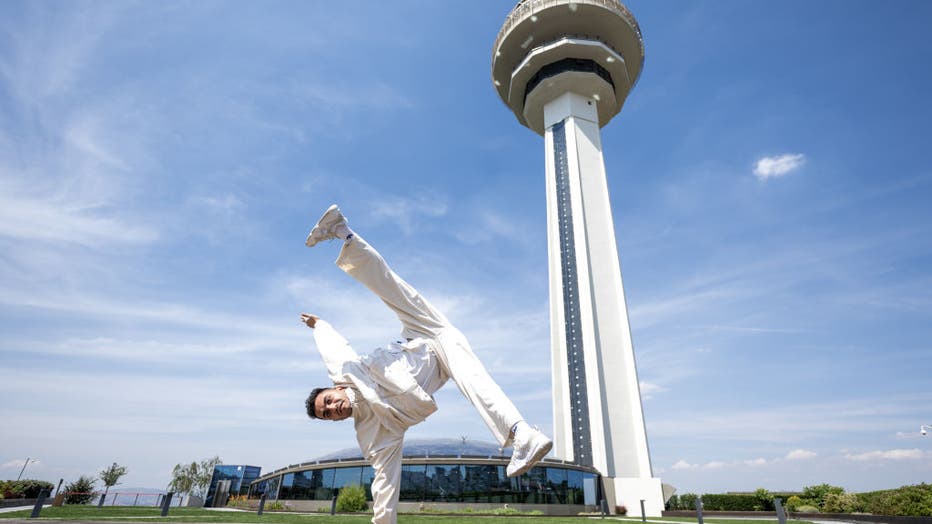
Breakdancer Bilgehan Turkyilmaz, who was nicknamed as 'Spaype' (inspired from Severus Snape) at stage, performs at the Atakule to train after International Olympic Committee (IOC) approves the breakdancing as first dance sport ever to compete at the
For the Paris games, judges will score breakers using what’s known as the Trivium judging system. A panel of five judges scores each breaker on creativity, personality, technique, variety, performativity and musicality.
Because this is breaking’s debut at the Summer Games, there are no reigning Olympic champions.
This story was reported from Los Angeles. The Associated Press contributed.

